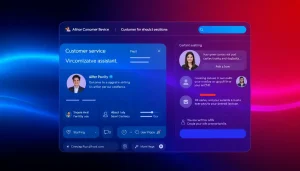Challenges and Concerns regarding the VDAP Program in Alabama for Nurses
1. Overview of the VDAP Program in Alabama
The Voluntary Disciplinary Alternative Program (VDAP) in Alabama serves as a crucial lifeline for nurses facing issues related to substance abuse and mental health challenges. This program is designed to provide an alternative to traditional disciplinary measures, enabling nurses to seek help while retaining their licenses and professional standing. The Alabama Legislature authorized VDAP to promote early identification and intervention, supporting nurses in their journey toward recovery and professional rehabilitation. By participating in the VDAP Program in Alabama, nurses can obtain the treatment they need without the stigma often associated with addiction and mental health issues.
1.1 Purpose and Structure of the VDAP Program in Alabama
At its core, the VDAP Program in Alabama aims to address the sensitive issues of addiction and mental health among nurses in a supportive and non-punitive environment. The structure of the program allows participants to engage in an array of treatment options, counseling, and professional development opportunities while undergoing regular monitoring. This comprehensive approach is designed to restore health and reintegrate nurses into the workforce efficiently.
1.2 Key Eligibility Criteria for Participants
Eligibility for the VDAP is primarily focused on nurses who voluntarily admit to substance use issues or mental health struggles. The key criteria include:
- Active nursing license in Alabama.
- Admission of substance abuse problems or mental health issues.
- Willingness to commit to the prescribed treatment and monitoring programs.
- No prior or pending disciplinary action related to nursing practice.
Nurses seeking assistance must demonstrate a clear intention to engage in recovery and adhere to the program’s guidelines to be considered eligible.
1.3 Understanding the Application Process
The application process for the VDAP is straightforward yet carefully monitored to ensure commitment from the applicants. It typically involves the following steps:
- Submitting a completed application form to the Alabama Board of Nursing (ABN).
- Participating in an evaluation to assess the severity of the substance abuse or mental health issue.
- Meeting with a designated VDAP coordinator or case manager to develop a personalized treatment plan.
- Committing to ongoing monitoring and reporting as specified by the program guidelines.
This process helps ensure that participants can receive the appropriate level of care while maintaining accountability throughout their recovery journey.
2. Common Issues Nurses Encounter with the VDAP Program in Alabama
While the VDAP offers significant benefits, it is not without its challenges. Many nurses face difficulties during their participation that can complicate their recovery efforts and impact their careers.
2.1 Financial Burdens on Participants
One of the foremost concerns for nurses entering the VDAP is the financial burden associated with treatment. Costs can vary significantly, but participants often encounter expenses that include:
- Initial assessments and evaluations, sometimes exceeding $3,500.
- Monthly treatment fees that can range from $500 to $1,000.
- Additional costs for random drug screenings, counseling services, and support groups.
Many nurses find themselves grappling with the financial implications of these costs, which can be overwhelming and may deter some from seeking help. Understanding potential financial aid options or insurance coverage is crucial for easing this burden.
2.2 Navigating the Treatment Program Effectively
Navigating the treatment program can present its own set of challenges. Nurses may struggle with:
- Finding effective treatment solutions that align with their specific needs.
- Understanding the complexity of program requirements and monitoring processes.
- Dealing with potential stigma from colleagues and the broader healthcare community.
Success within the program often requires nurses to actively engage in their treatment plans, seeking regular supervision and guidance from addiction specialists and mental health professionals.
2.3 Impact on Nursing Careers
The impact of the VDAP on a nurse’s career can vary widely, with both positive and negative outcomes observed. While the program provides a pathway back to professional life, challenges such as:
- Increased scrutiny during work performance evaluations.
- Difficulty in securing positions post-treatment due to the stigma associated with past substance abuse.
- Possibly restrictive licenses during or after program completion.
It’s crucial for nursing professionals to have a robust support network and advocacy resources in place to aid in the transition back into the workforce following participation in the VDAP.
3. Legal Implications of the VDAP Program in Alabama
Understanding the legal framework surrounding the VDAP Program is essential for nurses considering participation. There are rights and risks involved that must be navigated carefully.
3.1 Understanding Participants’ Rights
Nurses participating in the VDAP have certain rights, including:
- The right to confidentiality regarding their treatment and participation.
- The right to legal representation throughout the process.
- The right to a fair evaluation without discrimination.
Being aware of these rights can empower nurses to advocate for their needs and ensure they receive the necessary support during treatment.
3.2 Legal Risks Involved
Entering the VDAP also carries potential legal risks. For instance:
- Volunteering for the program may prevent nurses from later being able to contest disciplinary actions based on prior offenses.
- Failure to comply with the program’s requirements can lead to harsher penalties and the potential loss of nursing licenses.
Consulting with a legal expert familiar with nursing regulations in Alabama can help navigate these complex issues and mitigate risks effectively.
3.3 Role of Legal Representation in VDAP
Legal representation can play a critical role for nurses involved or considering entry into the VDAP. An attorney can assist in:
- Providing legal advice regarding rights and obligations.
- Negotiating terms of participation to ensure a fair and supportive framework.
- Defending against any potential disciplinary actions that could arise.
Employing legal counsel is a vital step for nurses wishing to ensure their interests are protected while participating in this program.
4. Alternative Options for Nurses in Alabama
Nurses in Alabama seeking help with substance use or mental health issues have several alternatives to the VDAP. Exploring these options can provide a more tailored approach to recovery.
4.1 Other Treatment Programs Available
Various treatment programs catering specifically to healthcare professionals exist. Some notable alternatives include:
- Employee Assistance Programs (EAPs) offered by many hospitals and nursing facilities, providing confidential counseling and support.
- Outpatient rehabilitation centers focusing on addiction recovery for healthcare workers.
- Support groups such as Al-Anon or Narcotics Anonymous that offer peer support.
It’s crucial for nurses to research these options thoroughly to find a program aligning with their needs and preferences.
4.2 Comparing VDAP with Alternative Strategies
When comparing the VDAP with alternative strategies, consider key factors such as:
- Cost: Some alternatives may offer sliding scale fees or covered costs through health insurance.
- Flexibility: Alternative programs may provide more options for treatment types, scheduling, and locations.
- Stigma: Some nurses may feel more comfortable seeking help through private programs rather than a state-run initiative.
Choosing the right avenue for recovery should involve a deep consideration of personal circumstances, career goals, and recovery needs.
4.3 Resources for Mental Health Support
In addition to structured treatment programs, nurses in Alabama have access to numerous resources dedicated to mental health support, including:
- National Nurses United, which offers a variety of resources for mental health and wellness.
- Crisis hotlines that provide immediate assistance and counseling referrals.
- Local mental health organizations focused on the needs of healthcare professionals.
Utilizing these resources can significantly enhance the support system for nurses on the road to recovery.
5. How Nurses Can Advocate for Change in the VDAP Program in Alabama
Nurses play a pivotal role in fostering reform within the VDAP to enhance its effectiveness and accessibility. Advocacy can lead to important changes that benefit all nursing professionals.
5.1 Engaging with Professional Organizations
Professional organizations serve as vital platforms for advocacy. Nurses can engage with these groups to:
- Share personal experiences and suggest improvements for VDAP.
- Participate in workshops and forums aimed at addressing the challenges related to substance abuse in nursing.
- Collaborate on initiatives to raise awareness and promote changes to the program’s structure.
Active participation can lead to collective action that influences policy and program improvements.
5.2 Building a Support Network Among Peers
Creating a peer support network is essential for nurses facing similar challenges. Building this network enables nurses to:
- Share coping strategies and treatment resources.
- Encourage each other through the recovery process.
- Voice collective concerns to decision-makers regarding the VDAP.
A strong support system can alleviate feelings of isolation and empower nurses to advocate for impactful changes.
5.3 Strategies for Raising Awareness and Policy Change
To instigate meaningful change within the VDAP, nurses can implement various strategies, such as:
- Writing articles or blogs to discuss experiences and share insights on the limitations of the VDAP.
- Hosting and attending community events focused on addiction and recovery awareness.
- Lobbying for legislative changes that enhance support for nurses engaged in recovery programs.
Raising awareness about the challenges faced within the VDAP can serve to mobilize support for necessary reforms and improve the program’s overall structure.














Post Comment